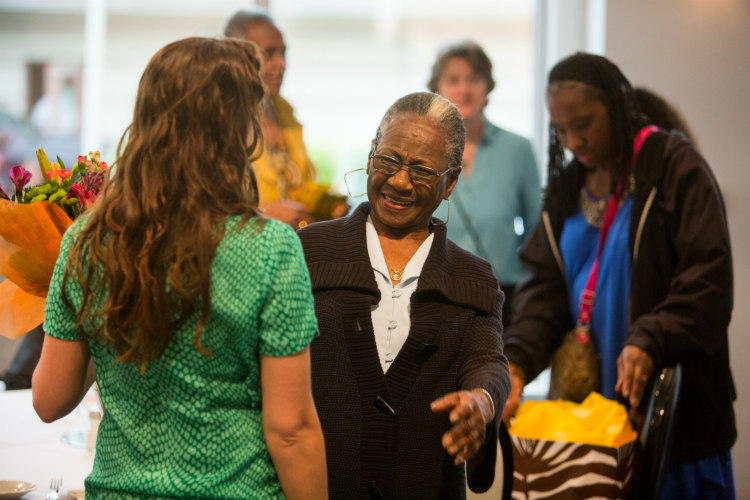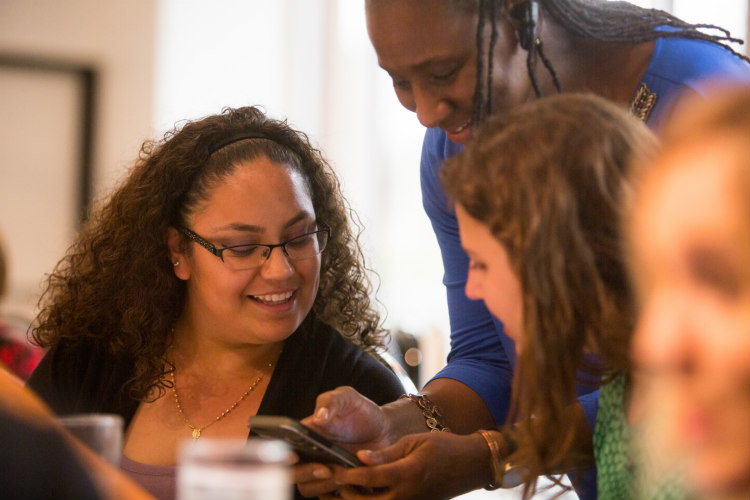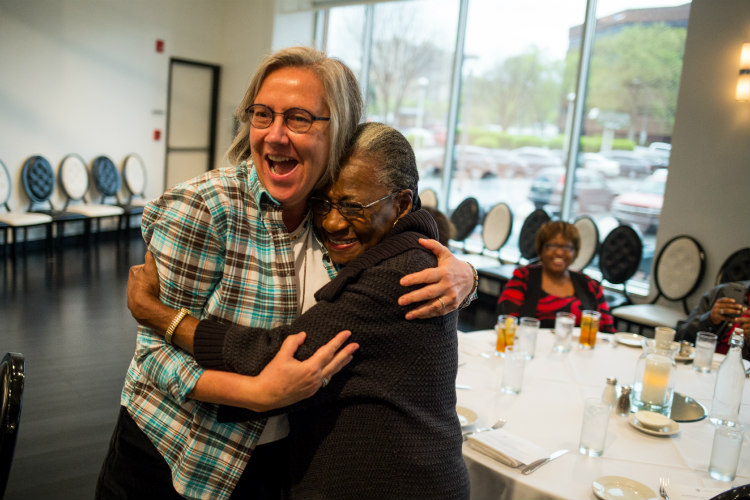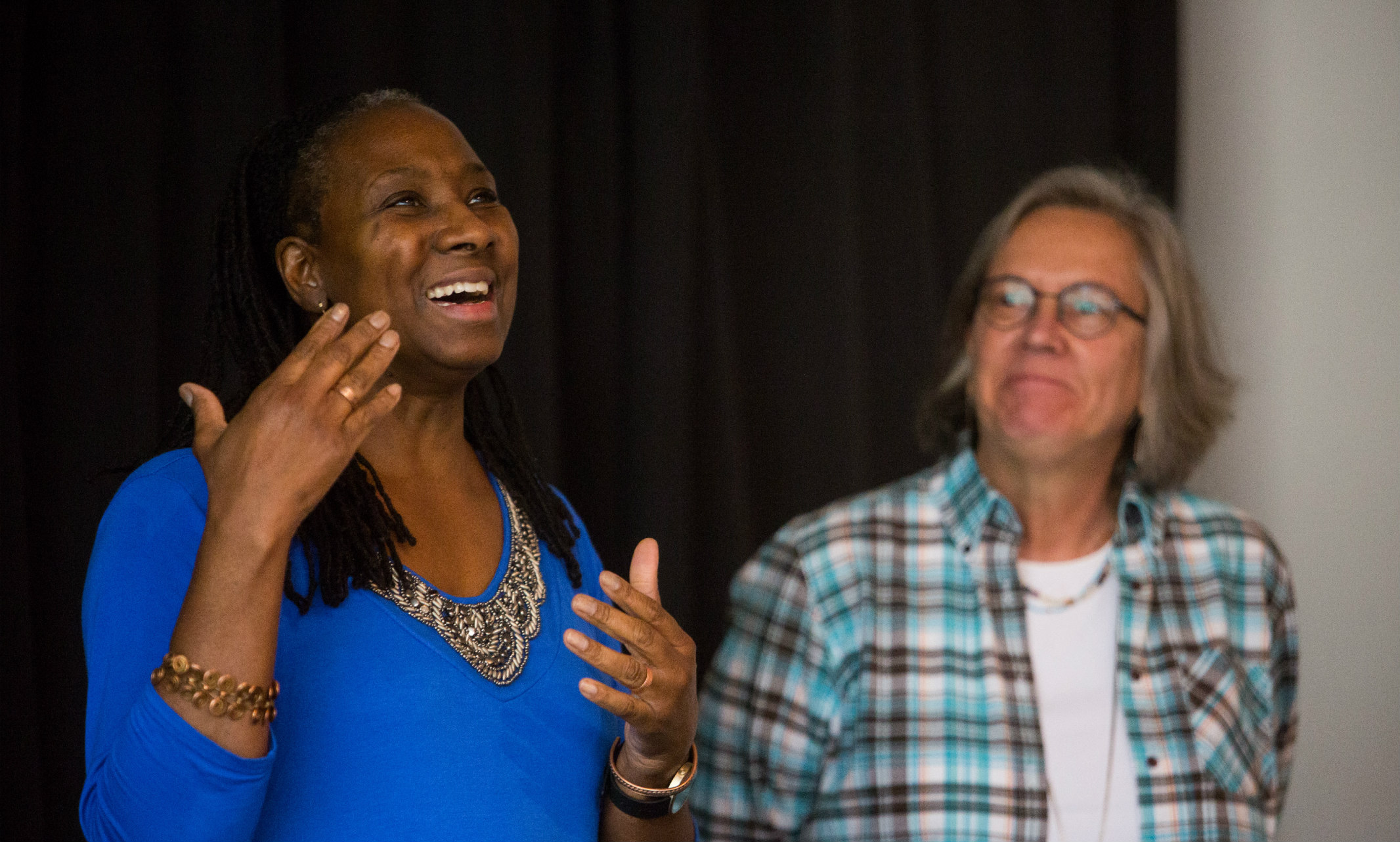Grandparents are increasingly becoming the primary caregivers for their grandchildren. The UMKC Psychology Department at the College of Arts and Sciences has recently received a second round of funding from the Health Forward Foundation for a program that supports grandparents in this role.
More than 2.5 million grandparents in the United States are raising grandchildren, according to the 2017 U.S. census. Compared to non-relative foster homes, the children living with their grandparents are more likely to have a permanent home, less likely to run away and are more likely to report feeling loved and stay in contact with extended family.
“Our grandparents are fiercely independent and the idea of a ‘support group’ was not attractive.”
-
While this speaks well of the relationships, there are significant – and often overlooked - challenges for grandparents in this situation.
Recognizing the need, Joan McDowd, professor of psychology and director of gerontology programs at UMKC, has developed a program for these older adults who are managing a second round of parenting.
“Four years ago, I stared exploring the possibility of collaborating with a community-based partner,” McDowd said. “I connected with Palestine Missionary Baptist Church and Senior Citizens Activity Center and started talking to people. We thought an intergenerational program would be interesting.”
The team began to talk with grandparents in the community at churches and health fairs as well as the grandparents at Pemberton Park, an apartment complex specifically designed by the Housing Authority of Kansas City for “grandfamilies.”

“We set up tables at health fairs to do a needs assessment,” McDowd said. “We threw a Halloween party so that the grandparents could take a break and the kids could have fun.”
This informal information gathering led to a pilot project with Palestine Church hosting monthly meetings for grandparents. Once the team determined what was working, they submitted a request to Health Forward and received funding.
“As a foundation, we are always interested in how to support collaborative efforts that bring in the stakeholders as part of a larger community-wide project,” Andres Dominguez, senior program officer for the Health Forward Foundation said. “This grant seeks to address a concern of engaging an intergenerational approach to sustained family well-being.”
“The first year of funding allowed us to develop a series of meetings on topics that the grandparents had identified,” McDowd said. “We had lawyers address family law. We invited a financial planner to discuss preparing for the future. We hosted psychologists to talk about trauma and self-care.”

In addition to these “Saturday Sessions”, the team tried to set up smaller support groups so grandparents could use one another as resources for emotional or practical support. McDowd’s team created leaders’ manuals on how to organize a group and what subjects to cover. They created YouTube videos where they play-acted how to handle difficult situations like managing someone who talks too much or the person who doesn’t talk at all. However, when the team tried to organize support groups, grandparents hesitated to join.
“Our grandparents are fiercely independent, and the idea of a ‘support group’ was not attractive,” McDowd said. “But when we would ask what was working and what they wanted more of, they would often say, ‘More time to share our stories,’ or ‘More time to talk.’ But ‘support group’ had a negative connotation.” Using this feedback, the team has now developed a program component called “Grandparents Café” that provides the opportunity for grandparents to break into small groups and discuss topics of the day.
“If grandchildren are living with their grandparents, often it is because something bad has happened,” McDowd said. “Still there’s no law that says that if something happens you have to take your grandchildren. These people have stepped up.”

Danita Hoard, B.A. ’16, M.S.W. ’19, worked with McDowd gathering information determining grandparents’ needs and developing the program manual.
“I was interested in this program because I was raised by my grandmother,” Hoard says. “It was great to see that these meetings allowed the grandparents to work through the trauma their grandchildren were facing, but also connect with other grandparents and programs. But it also made me aware that growing up my needs were being met, but I wasn’t aware of what of my grandmother experienced.”
It's not unusual that even the people closest to these situations overlook the strain that grandparent caregivers are under. McDowd thinks that is why the program has been successful.
“I’ve really seen the grandparents come out of their shells because they can relate to both the subject matter and each other. The speaker may be talking about the financial planning - that's all super important information, but when you get down to it, they are hurting and when a facilitator is addressing those issues it becomes much more powerful. What we're doing has become more powerful.”
The success of these sessions – and the resulting sustainability plan - led to a second round of funding from the Health Forward Foundation.
“Joan and her team have shown us that they have the ability to take what has already been accomplished and build on it,” Dominguez says. “Reinvestment can always add value to our grant work. In addition, programs and projects like this are able to reach seniors and bring life to the concept of age-friendly communities. As this city and nation ages, and with baby boomers now being at the cusp of ‘retirement,’ projects that can share their findings and accomplishment can become models for replication.”

